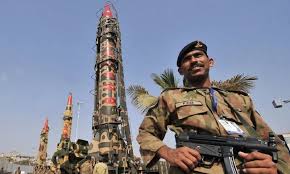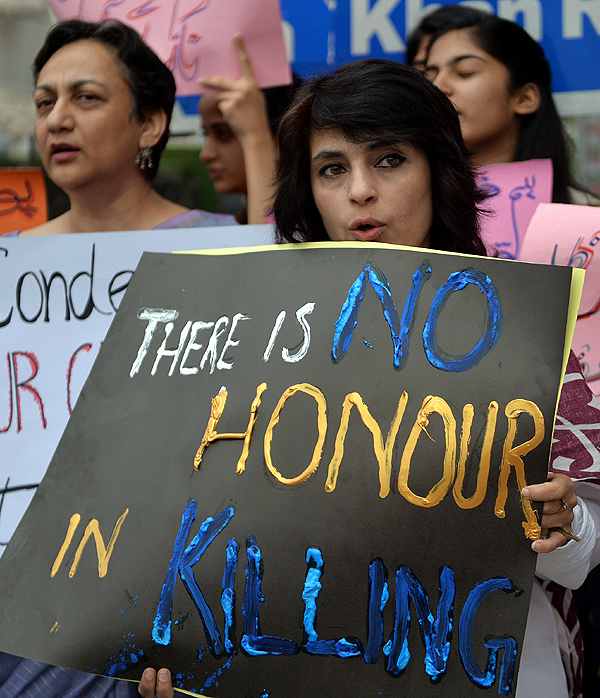India’s ‘aggressive foreign policy’ Raises Concern For Senators
Wednesday, June 8th, 2016 7:10:56 by modousarr
In a discussion regarding the adjournment motion moved by Javed Abbasi of PML-N on the “recent test of an intercept missile by India contributing to an unhealthy arms race in the region”, senators mentioned their concerns over India’s increasing relations with other countries, most especially Afghanistan, Iran, Qatar, Saudi Arabia and the United Arab Emirates.
While giving their speeches, they noted the latest visits by Prime Minister of India, Narendra Modi to several countries that are considered allies of Pakistan.
On May 15, with the intention to run a fully-fledged and multi-layered ballistic missile defence system, India productively test-fired a precariously developed supersonic interceptor missile with the power to destroy any incoming ballistic missile.
The chairman of the Senate defence committee, Mushahid Hussain Sayed captured the attention of the members of the house by highlighting the “growing collusion between India and the US”.
The PML-Q senator stated that the Indian prime minister was presently in Washington where he is expected to address the US Congress. According to him, the member states of the Nuclear Suppliers Group (NSG) will in a few days consider India’s request to be a member of the group.
Mr. Sayed with the opinion that Pakistan’s diplomacy had failed, claimed that should India become a member of the NSG, it would be able to prevent Pakistan’s entry into the group.
“We have alienated Iran and Afghanistan and the two countries are now improving their economic ties with India,” he said.
With reference to the May 15 Indian missile test, he said: “We are going to enter an unending arms race.”
Aside from steps to oppose India’s plans by military means, he demanded “cohesion” within the country, claiming that India should not be given leeway to manipulate the current state of Pakistan.
Requesting a review of the security and defence policies, Farhatullah Babar of the PPP stated that the policy to assist non-state actors for the promotion of certain security goals had led to an arms race in the region.
He added, “There will be no arms race in the region if foreign and security policies are formulated by civilians.”
Mr Babar voiced his opinion that the civilian and political leadership ought to be alert and regain the space in forming security policies that have been dangerously ceded to the security establishment.
Rehman Malik, the former interior minister said Iran was prepared to provide its bases to India. He added that Pakistan’s role in the war on terror went unnoticed by the US. He questioned the US’ failure to target Taliban chief, Mullah Akhtar Mansour with drones when he was travelling in Iran.
To conclude the debate, Adviser to the Prime Minister on Foreign Affairs, Sartaj Aziz stated that Pakistan would apply all possible means to augment its defence capabilities.
“Pakistan is not oblivious to its defence requirements and upgrading its capabilities through suitable technologies without entering into an arms race,” adding that, “our efforts for peace and friendship must not be interpreted as our weakness. We are fully capable of defending our people and territory”.
Aziz further claimed that the strategic threats that Indian nuclear doctrine posed to national security were been studied and evaluated by the country’s scientists and experts. He believed that despite the limited resources, Pakistan had grown a robust nuclear deterrent system.
The adviser stated that Pakistan intended to highlight the dangerous consequences of India’s plan to nuclearize the Indian Ocean at all the important international forums. He added that Pakistan was contemplating moving a resolution in the UN General Assembly, wishing to declare the Indian Ocean as nuclear-free.
Pakistan is supposedly lobbying effectively in all the member countries of the NSG, with Mr Aziz saying, “Our efforts towards a non-discriminatory approach will pay off.”
Senate Chairman Raza Rabbani gave suggestions to the members that the Senate could be converted into a committee of the whole house to initiate new “terms of engagements with the US”. He further suggested that the committee invite stakeholders and hold in-camera sittings regarding the matter.
Tags: India, NSG, Pakistan security and defense policies, USShort URL: https://www.newspakistan.pk/?p=53231

















